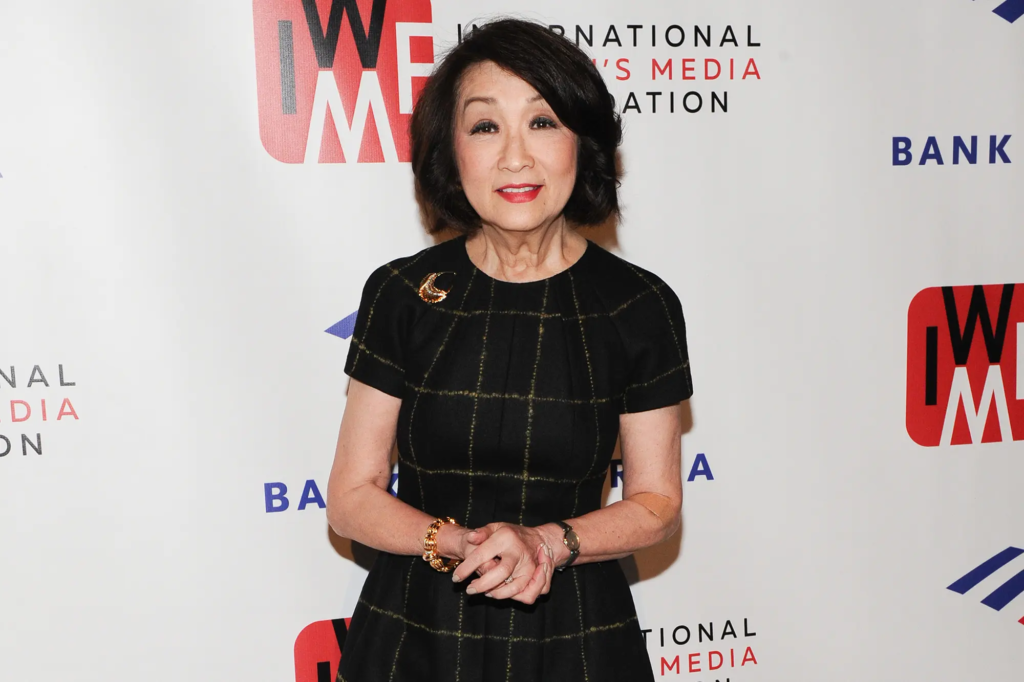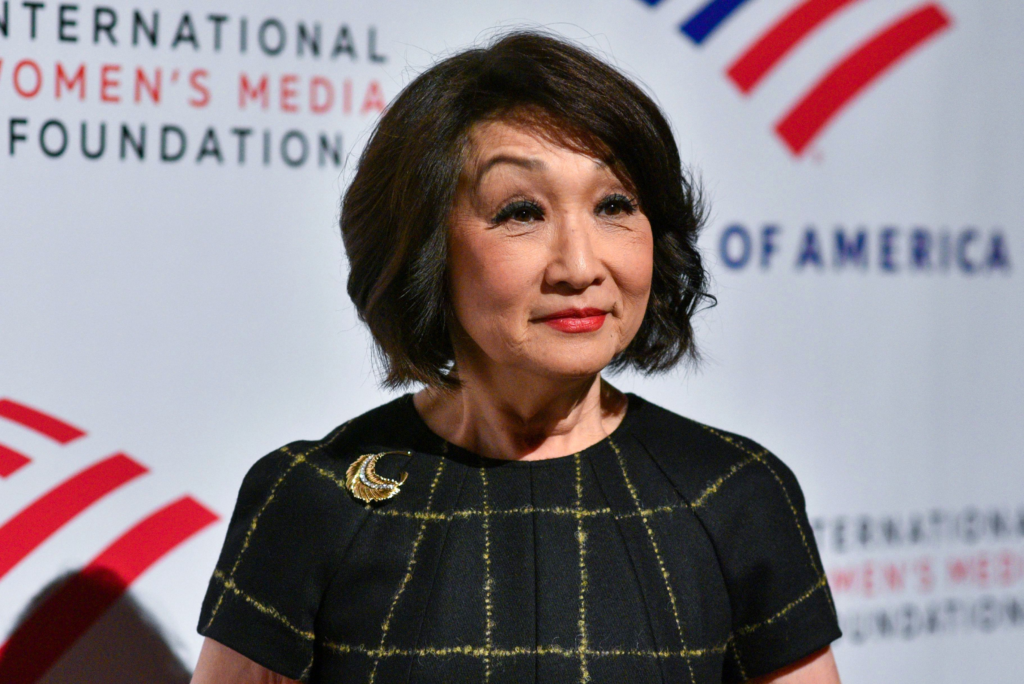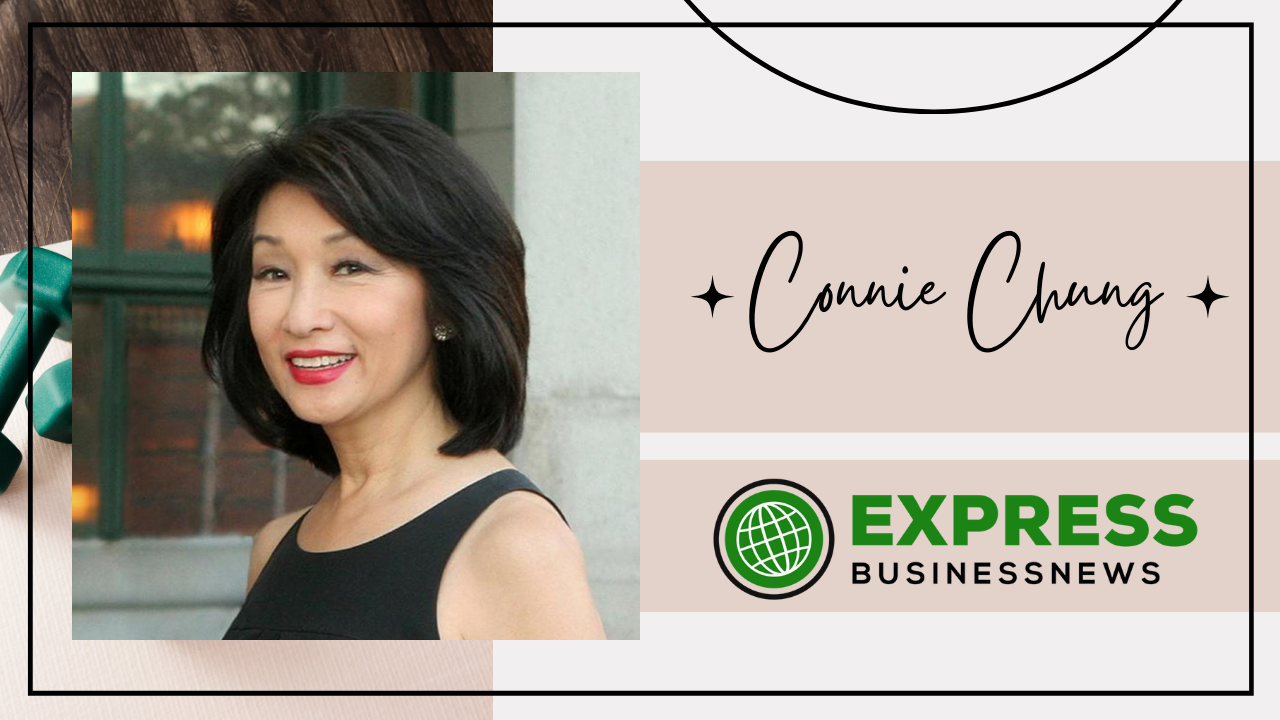Introduction to Connie Chung
Connie Chung, born Constance Yu-Hwa Chung on August 20, 1946, in Washington, D.C., is a trailblazer in American journalism known for her impactful reporting and groundbreaking interviews. Raised in a Chinese-American family, Chung’s early life was shaped by the cultural challenges and opportunities of growing up in a diverse America. Her parents, who immigrated from China, instilled in her a strong work ethic and a determination to overcome barriers. Chung attended the University of Maryland, where she majored in journalism. Her academic background laid a solid foundation for a career that would eventually redefine the landscape of broadcast journalism.
Early Career and Breakthrough of Connie Chung
Connie Chung began her career in journalism at a local television station in Washington, D.C., where she quickly made a name for herself with her reporting skills and charisma. Her breakthrough came when she joined the CBS News team in the early 1970s. At CBS, Chung’s reporting on the Watergate scandal and subsequent political events showcased her ability to handle complex and sensitive topics with poise and insight. Her rise within the network was marked by assignments, including covering the 1975 Fall of Saigon and the 1976 Democratic National Convention. These early experiences set the stage for her future successes and solidified her reputation as a formidable journalist.
Pioneering Achievements in Network News
In the 1980s, Connie Chung career reached new heights as she became one of the first Asian-American women to anchor a major network news program. Her tenure at CBS and later at ABC saw her tackling a range of high-profile stories, from political scandals to international conflicts. Chung’s ability to connect with audiences and her fearless approach to journalism earned her widespread acclaim. She was known for her incisive interviews with prominent figures, including political leaders and celebrities, further establishing her as a leading voice in American news media.
Notable Interviews and Impactful Reporting
Connie Chung career is marked by a series of notable interviews that have left a lasting impact on journalism. One of her most famous interviews was with the then-President of the United States, Bill Clinton, during his second term. Chung’s probing questions and candid approach brought political interviews political interviews a new level of transparency. Another significant moment in her career was her interview with the First Lady, Patricia Nixon, which provided rare insights into the private life of a public figure. Chung’s ability to elicit honest and revealing responses from her subjects demonstrated her interview skills and her commitment to uncovering the truth.

Transition to Primetime and Legacy
In the 1990s, Connie Chung transitioned to primetime television, where she continued to make waves with her high-profile news specials and investigative reports. Her work during this period highlighted her versatility and adaptability as a journalist. Chung’s influence extended beyond the newsroom as she became a role model for aspiring journalists, particularly women and minorities striving to break into the field. Her legacy is defined by her pioneering efforts to bring diverse perspectives to mainstream media and her unwavering dedication to journalistic integrity.
Challenges and Controversies
Despite her numerous achievements, Connie Chung career was not without its challenges and controversies. Throughout her time in the industry, she faced criticism and scrutiny, particularly regarding her on-air persona and the direction of her career. Some critics argued that her transition to more entertainment-oriented programming in the late 1990s and early 2000s represented a departure from hard news. However, Chung’s ability to navigate these challenges and maintain a successful career in a rapidly changing media landscape is a testament to her resilience and adaptability.
Influence on Modern Journalism
Connie Chung influence on modern journalism is profound and enduring. Her career has paved the way for future generations of journalists, particularly women and minorities, who see her as a trailblazer in the industry. Chung’s work has contributed to the diversification of news media and the representation of different perspectives in mainstream journalism. Her commitment to high-quality reporting and her ability to address complex issues with clarity and depth have set a standard for journalists today.
Personal Life and Philanthropy
Outside of her professional achievements, Connie Chung is also known for her philanthropic efforts and commitment to various causes. She has been involved in numerous charitable organizations and has used her platform to advocate for issues related to education, healthcare, and women’s rights. Chung’s personal life, including her marriage to fellow journalist Maury Povich, has been a subject of public interest, but she has managed to balance her personal and professional lives with grace and integrity.
Reflections on Chung’s Influence and Legacy
Connie Chung influence on journalism extends far beyond her career achievements. Her ability to navigate a male-dominated field and rise to prominence as one of the first Asian-American women in major network news is a significant part of her legacy. Chung’s pioneering role has opened doors for others and has contributed to a broader representation in media. Her career serves as a powerful example of how breaking through barriers can inspire others to follow suit, reinforcing the importance of diversity and inclusion in journalism.
Chung’s impact is also evident in the way she has shaped the role of women in news reporting. Her success has demonstrated that women can excel in high-stakes, high-profile positions, challenging outdated stereotypes and setting new standards for female journalists. Chung’s career reflects a broader shift in media towards recognizing and celebrating diverse voices, underscoring the importance of representation in shaping public discourse.

Cultural and Societal Impact
Connie Chung work has had a significant cultural and societal impact, reflecting and influencing public perceptions of race, gender, and journalism. As an Asian-American journalist, Chung has played a crucial role in challenging racial stereotypes and fostering a more nuanced understanding of cultural identity in the media. Her presence on major networks and her approach to reporting have helped to broaden the scope of who is seen as a credible and authoritative voice in journalism.
Moreover, Chung’s reporting has often intersected with critical societal issues, including politics, social justice, and international relations. Her ability to cover such diverse topics with depth and sensitivity has contributed to informed public discussions and has highlighted the importance of thorough, unbiased journalism in addressing complex issues. Through her work, Chung has not only informed audiences but also encouraged critical thinking and engagement with important societal topics.
Connie Chung Role in Shaping News Formats
Throughout her career, Connie Chung has played a significant role in shaping news formats and television journalism. Her transition from traditional news reporting to more conversational and interactive formats in the late 1990s and early 2000s marked a shift in how news was presented to audiences. This evolution reflects broader changes in the media landscape, where audiences increasingly seek more engaging and personalized news experiences.
Chung’s adaptability and willingness to embrace new formats have demonstrated the importance of innovation in journalism. Her work has influenced how news is delivered and consumed, highlighting the need for journalists to remain responsive to evolving audience preferences and technological advancements. This adaptability has also underscored the role of journalists in shaping the future of news media.
Impact on Journalism Education
Connie Chung career has also had a notable impact on journalism education. Her achievements serve as a case study in journalism programs, illustrating the skills and attributes necessary for success in the field. Educators often use Chung’s work to teach students about effective reporting, interviewing techniques, and the importance of integrity and perseverance in journalism.

Chung’s legacy in journalism education emphasizes the value of diverse perspectives and the need for journalists to approach their work with a commitment to accuracy and fairness. Her career provides valuable lessons for aspiring journalists, reinforcing the importance of maintaining high standards and adapting to the changing media environment.
Conclusion
Connie Chung career is a testament to the impact of journalism on society and the power of determination and talent. From her early days in local news to her groundbreaking work at major networks, Chung has left an indelible mark on the field of journalism. Her contributions have not only shaped the way news is reported but have also inspired countless individuals to pursue careers in journalism. As a pioneering figure in the industry, Connie Chung legacy continues to influence and inspire, making her one of the most significant journalists of her time.





